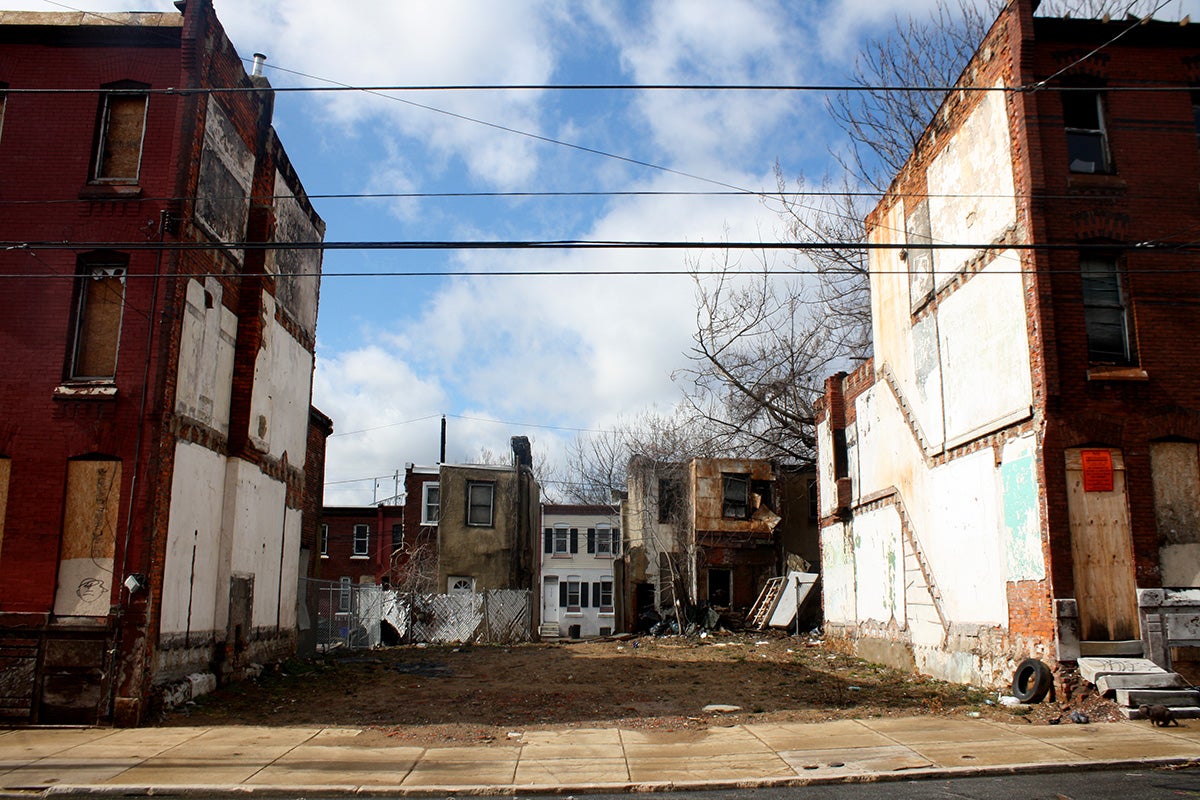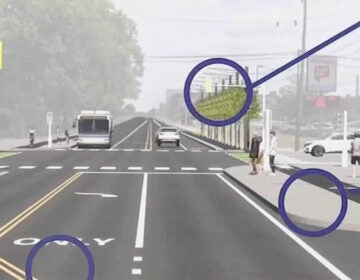Council Committee approves Land Bank plan

A City Council committee approved a resolution Monday adopting a first-year strategic plan for the Philadelphia Land Bank, a new entity created last year to help speed the redevelopment of thousands of vacant properties and buildings across the city.
As PlanPhilly previously reported, the strategic plan was developed by Interface Studio, a local planning firm, in coordination with City Council members, various city agencies, and a host of nonprofit and development groups. It includes a new set of data showing that the Land Bank could immediately target 8,000 publicly owned vacant parcels, as well as an additional 24,000 privately owned, vacant, and tax-delinquent properties.
The Land Bank’s goals include promoting equitable development of affordable and market-rate housing, preserving community gardens and open space, and supporting economic development on neighborhood commercial corridors. Its initial work will focus on transferring single vacant lots to property owners as side yards or community gardens.
“What will the Land Bank do under this strategic plan?” asked Michael Koonce, director of the Land Bank board, in a prepared statement to the committee. “It will of course acquire, manage and dispose of vacant and abandoned property. It will combat blight on otherwise stable blocks. It will help reverse blight in struggling neighborhoods. It will support the provision of affordable housing by assisting in the assemblage of land for development and by promoting the development of mixed-income housing by for-profit and nonprofit developers …”
Koonce was also careful to note that the Land Bank will not displace people, because it can only target already-vacant properties. He noted, too, that it will not create any new sources of funding for affordable housing or other types of development subsidies.
“The Plan balances the need to use vacant properties for affordable and market-rate homes,” said Beth McConnell, policy director for the Philadelphia Association of Community Development Corporations (PACDC),” as well as to create more mixed-income communities, to create economic opportunities on our neighborhood commercial corridors, and to preserve and create new green spaces.”
The majority of the dozens of witnesses who testified on Monday were supportive of the goals of the strategic plan. Many also said they’d like to see more specific policies and targets for affordable housing and other uses.
“The Land bank has the potential to be a powerful neighborhood stabilization tool and a mechanism to prevent the loss of historic buildings across the city,” said Ben Leech of the Preservation Alliance for Greater Philadelphia. “Unfortunately, the plan does not yet describe how the Land Bank will take historic or potential historic status or properties into account.”
Amy Laura Cahn, an attorney with the Public Interest Law Center of Philadelphia praised Interface Studio and the Land Bank staff for producing a plan that “exceeded expectations” in its openness and commitment to soliciting and reacting to public input. But she said the plan needs to establish specific targets for the end uses of vacant properties the Land Bank will acquire.
“Even modest targets would help set and manage expectations for how we wish the Land Bank to function,” Cahn said in a statement. “Targets will help the public understand how the Land Bank board views the different priorities relative to each other and how they intend to allocate resources across different uses.”
Other witnesses, including Tiffany Green of Point Breeze, said they worried that the Land Bank could accelerate gentrification that displaces poor residents in areas where property values are increasing. Another witness, Jihad Ali, said the Land Bank could strip Councilmembers of their rightful power to guide development in their districts. (A major battle was fought in Council when the Land Bank was being created over preserving certain processes that bolster district councilmembers’ prerogative.)
The resolution was approved unanimously by the Committee on Public Property and Public Works. It could go to a full Council vote on December 11th.
WHYY is your source for fact-based, in-depth journalism and information. As a nonprofit organization, we rely on financial support from readers like you. Please give today.






